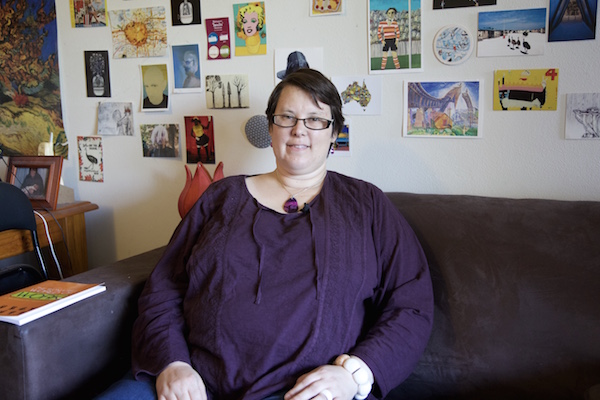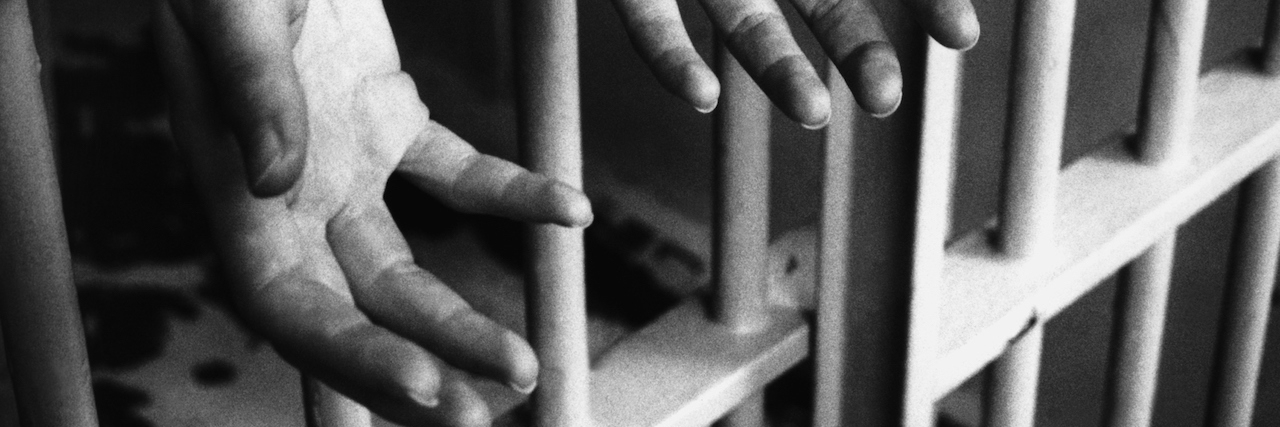I am an autistic author and public speaker. I work in a professional role in government administration. I also have a diagnosis of atypical schizophrenia. I am a respected member of the community and do a lot of work around autism and mental health advocacy.
However, I have not always been motivated to create positive change. When I was younger I was troubled and sought out negative things. I spent almost four years in prison, firstly as a result of a relationship with a dangerous man who I was too naive to avoid, and then because there were no appropriate services for someone like me. I had a serious mental illness and no insight or understanding of the consequences of my actions. My poor behavior was a result of my illness and lack of insight rather than evil intent, but it still needed to be addressed. What happened in my life reflects a service failure which can still occur for people with disability and/or mental illness who become involved in the criminal justice system. This is a letter to an unlikely someone who helped me to escape that awful world and be the person I am now.
Dear Mr Morris,
When we met you were a prison officer and I was a prisoner. I thought you were conservative and a little scary. You were tall and confident and spoke with an English accent. Your moustache was neat and your shirts always meticulously ironed.
When I met you I was confused and self-destructive. My mental illness influenced my behavior and also my sense of who I was. Depression made me negative and my psychosis told me lies — I thought you and your colleagues were trying to hurt me when you were just doing your job. Every day I struggled with intrusive thoughts which commanded me to hurt others or myself. My self-harm was frequent and dangerous. I am surprised I didn’t die. The lost world of prison mirrored my internal world of illness and confusion. I was angry with myself and the world.
I was under your charge for about three years. Other prisoners said you were decent, but I would never outwardly agree with that. You were a “screw’” and as such I would not speak to you other than to hurl insults. My life went on like a bad dream. The future to me was the coming Friday. I was given medication prescribed by a psychiatrist I never met. I was called a management problem — violent, non-compliant and prone to self-harm.
I noticed you never told me I was unreachable and hopeless. You started to tell me about how I could leave this life I had behind and make a better one for myself. I thought, “This person is an idiot as well as a key-turning screw!” Prison authorities tried in every way they knew to change my life — I was sent to the forensic psychiatric hospital. For a while all the nurses in the prison medical center were psychiatric nurses. One of them took an interest in “fixing’” me. I hated her. She set me a task to write five pages describing how I would achieve my ultimate goal. Severely depressed people don’t tend to have helpful ultimate goals. I looked at the five sheets of paper for weeks and didn’t know what to write. This exercise just put my despair into sharper focus. I was haunted by ghosts and fantasized about my own death.
Towards the end of 1999, I started to see my life was directionless and broken. I decided a new millennium should equal a new life. I told a number of your colleagues and you about this aspiration. Almost all of your fellow officers were disparaging and dismissive. You were not. You encouraged my wish to change.
I didn’t have a lot of supporters and role models back then, but you became one. When I was released I drew on your encouragement and support. It was hard transitioning to a life of being ethical and law-abiding after years of self-destruction and violence, but knowing you were there in the prison, wanting me to succeed in life, was incredibly helpful.
I called you on the phone for a few months. You expressed faith in my ability to make the new millennium equal a new life. That transition point was difficult, but you helped me through it. I went on to change my world to a point that it is now unrecognizable from when I knew you. I started to actively seek out help for my metal illness and saw a competent psychiatrist who changed my medicate to a more effective one. I became positive and hopeful for the future.
I would love for you to know all the good things I have done since we met. I hold the memory of you in my heart. You were one of a very small number of people who believed in me when few others did. I try to share your optimism and faith when I meet people that I worry are beyond hope. Your example shaped the advocate and mentor I am now so you have indirectly helped many other people.
There is no way to adequately recognize your role in turning my life into something good. So I’ll just say thank you, Mr Morris.
Jeanette


